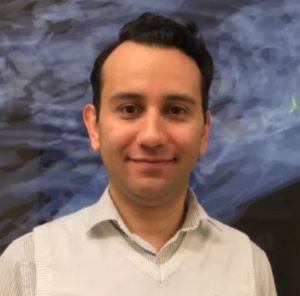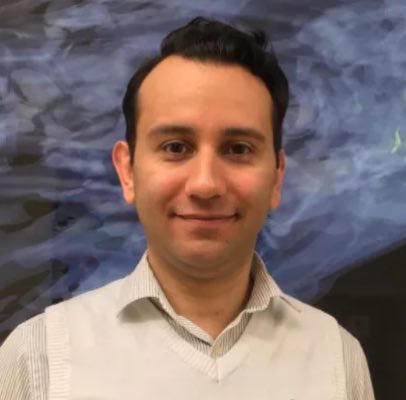 Santiago Nuñez-Corrales, a graduate researcher at NCSA and Ph.D. student in Informatics at the University of Illinois at Urbana-Champaign was one of twelve recipients to be awarded the SIGHPC/Intel Computational and Data Science Fellowship for 2017.
Santiago Nuñez-Corrales, a graduate researcher at NCSA and Ph.D. student in Informatics at the University of Illinois at Urbana-Champaign was one of twelve recipients to be awarded the SIGHPC/Intel Computational and Data Science Fellowship for 2017.
The fellowship brings with it so many benefits,” said Nuñez-Corrales. “Attending SC17 is important to keep up with development in the HPC community, and the financial support is critical to continuing my degree, as I have no funding from my home country.”
The fellowship, funded by Intel, was established to increase the diversity of graduate students pursuing degrees in data science and computational science. The fellowship provides $15,000 for students to study anywhere in the world, and travel support to attend the annual supercomputing conference, better known as SC17, this year in Denver, Colorado.
Santiago will bring to SC17 nearly a decade of experience in computer science.
In 2007, Santiago graduated from the Costa Rica Institute of Technology in computer science and engineering, with a growing interest in the intersection of computing and science. Fast forward three years to 2010, when Santiago meets Professor Erik Jakobsson from NCSA and the Beckman Institute at the University of Illinois.
Professor Jakobsson was visiting Costa Rica for a seminar that helped get started what would become our first generation of local computational scientists at the Costa Rica Institute of Technology,” Nuñez-Corrales said.
They talked about Fokker-Planck equations, stochastic methods, and six years later, Santiago came to the University of Illinois to start his Ph.D in Informatics under the direction of professor Les Gasser.
Gasser, a professor in both computer science and informatics at Illinois is a faculty fellow at NCSA. Gasser’s project, “Simulating Social Systems at Scale,” demonstrates new approaches to building very large computer models of social phenomena such as social change, the emergence of organizations, or the evolution of language and information.
Sanitago’s work focuses on software development for Agent-Based Models (ABMs) geared towards social simulation using Blue Waters. Together, their goal is to develop cyberinfrastructure resources that facilitate the design of experiments based on social theories, embodied in ABMs. Santiago’s work with Gasser also landed him the opportunity to intern with the Midwest Big Data Hub, based at NCSA.
Gasser also nominated Santiago for the fellowship.
Research like this requires the ability to draw together knowledge from many disciplines including simulation, statistical physics, stochastic computing, and domain issues,” Gasser said. “Santiago has the fluency in all of these arenas to be able to synthesize novel solutions that push the state of the art, and this had a direct impact on his success.”
One thing he adamantly acknowledges is that his successes have been a group effort.
This award forces me to reflect on the collection of people that laid out opportunities that I could access,” said Nuñez-Corrales. “None of us are self-made insofar that opportunities exist that were devised by others. I am in particular grateful to Professor Les Gasser and Professor Eric Jakobsson for their guidance and support, as well as to NCSA, the Informatics Ph.D Program and Illinois for creating a space where success is possible, and certainly to the ACM and Intel committee for the SIGHPC/Intel Fellowship.”
SC17 takes place Nov. 12-17 in Denver.
Sign up for our insideHPC Newsletter




